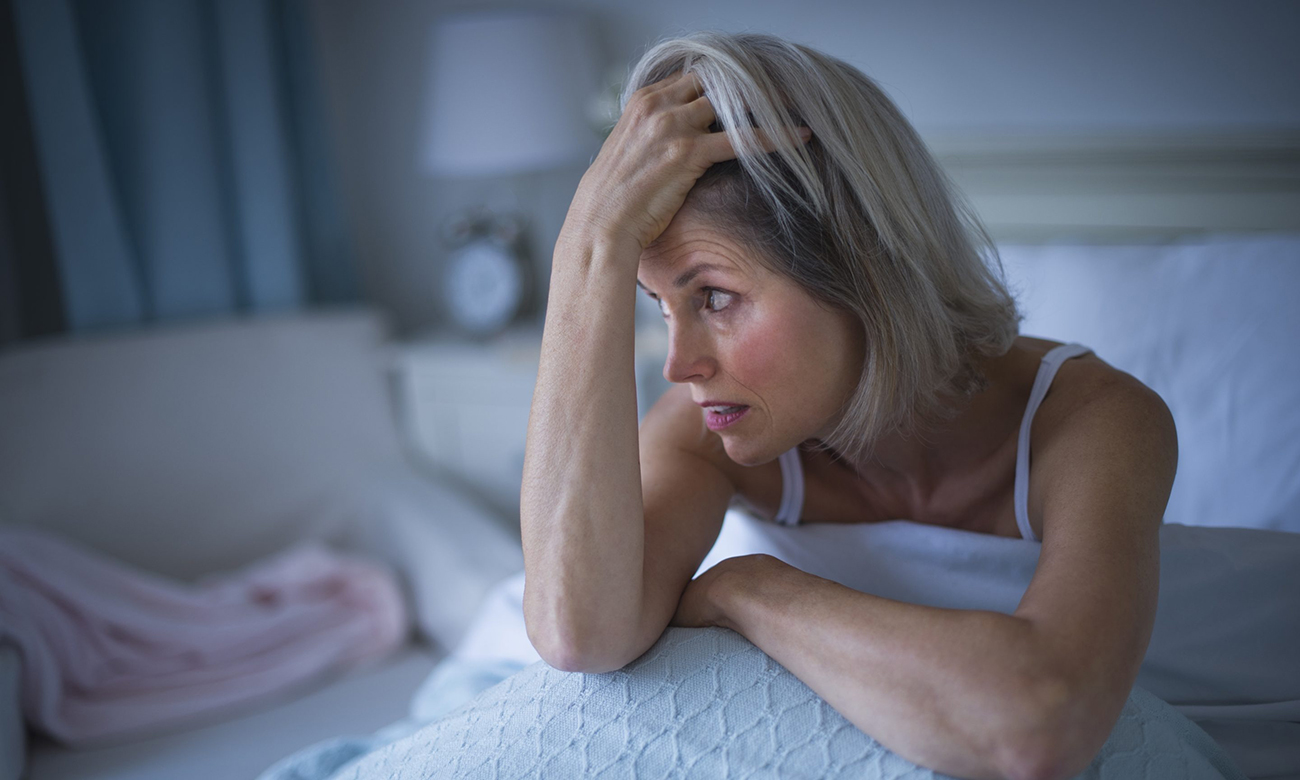
周三发表在《神经病学》(Neurology)杂志上的一项新研究表明,难以入睡和难以保持睡眠状态的人患中风的风险更大。
作者认为,虽然这项研究并不能证明失眠会导致中风,但它应该促使那些有睡眠问题的人寻求治疗。
研究人员调查了3万多名年龄在51岁及以上的参与者的睡眠质量,其中一半是男性,一半是女性,没有人患过中风。然后研究人员对他们进行了近10年的跟踪调查。他们被问及以下问题,每个问题都有相应的分数:
1. 你多久会出现入睡困难?(大部分时间=2,有时=1,很少或从不=0)
2. 你多久会在夜间醒来?(大部分时间=2,有时=1,很少或从不=0)
3. 你多久会出现过早醒来且无法再度入睡的情况?(大部分时间=2,有时=1,很少或从不=0)
4. 你多久会在早上醒来时觉得自己昨晚得到充分休息?(大部分时间=0,有时=1,很少或从不=2)
与没有睡眠问题的人相比,那些得分在1到4分之间的人,患中风的风险增加了16%。那些得分在5到8分之间的人,患中风的风险增加了51%。
在这两种情况下,风险的增加仅仅是由于睡眠问题,其他可能增加中风几率的因素——比如饮酒、吸烟和久坐不动的生活方式——被排除在外。
研究人员发现,失眠和中风之间的联系在50岁以下、得分在5到8分之间的研究参与者中最为明显。
该研究的主要作者、弗吉尼亚联邦大学(Virginia Commonwealth University)的温德米·萨瓦多戈(Wendemi Sawadogo)博士在一份关于该研究的新闻稿中说:“在年轻时管理失眠症状可能是预防中风的有效策略。”
根据作者的说法,那些有以下疾病的人患中风的风险更大:
• •糖尿病
• •高血压
• •心脏病
• •抑郁症
4月发表在同一份杂志上的一项研究发现,与推荐的每日7小时夜间睡眠相比,夜间睡眠少于5小时,罹患中风的风险高3倍。
具有讽刺意味的是,研究人员发现,夜间睡眠超过9小时罹患中风的风险也较大——罹患这种潜在致命疾病的风险高两倍。(财富中文网)
译者:中慧言-王芳
周三发表在《神经病学》(Neurology)杂志上的一项新研究表明,难以入睡和难以保持睡眠状态的人患中风的风险更大。
作者认为,虽然这项研究并不能证明失眠会导致中风,但它应该促使那些有睡眠问题的人寻求治疗。
研究人员调查了3万多名年龄在51岁及以上的参与者的睡眠质量,其中一半是男性,一半是女性,没有人患过中风。然后研究人员对他们进行了近10年的跟踪调查。他们被问及以下问题,每个问题都有相应的分数:
1. 你多久会出现入睡困难?(大部分时间=2,有时=1,很少或从不=0)
2. 你多久会在夜间醒来?(大部分时间=2,有时=1,很少或从不=0)
3. 你多久会出现过早醒来且无法再度入睡的情况?(大部分时间=2,有时=1,很少或从不=0)
4. 你多久会在早上醒来时觉得自己昨晚得到充分休息?(大部分时间=0,有时=1,很少或从不=2)
与没有睡眠问题的人相比,那些得分在1到4分之间的人,患中风的风险增加了16%。那些得分在5到8分之间的人,患中风的风险增加了51%。
在这两种情况下,风险的增加仅仅是由于睡眠问题,其他可能增加中风几率的因素——比如饮酒、吸烟和久坐不动的生活方式——被排除在外。
研究人员发现,失眠和中风之间的联系在50岁以下、得分在5到8分之间的研究参与者中最为明显。
该研究的主要作者、弗吉尼亚联邦大学(Virginia Commonwealth University)的温德米·萨瓦多戈(Wendemi Sawadogo)博士在一份关于该研究的新闻稿中说:“在年轻时管理失眠症状可能是预防中风的有效策略。”
根据作者的说法,那些有以下疾病的人患中风的风险更大:
• •糖尿病
• •高血压
• •心脏病
• •抑郁症
4月发表在同一份杂志上的一项研究发现,与推荐的每日7小时夜间睡眠相比,夜间睡眠少于5小时,罹患中风的风险高3倍。
具有讽刺意味的是,研究人员发现,夜间睡眠超过9小时罹患中风的风险也较大——罹患这种潜在致命疾病的风险高两倍。(财富中文网)
译者:中慧言-王芳
People who struggle to fall asleep and stay asleep may be at a greater risk of a stroke, according to new research published Wednesday in the journal Neurology.
While the study doesn’t prove that insomnia causes stroke, it should prompt those with sleep issues to seek care, the authors contend.
More than 30,000 participants ages 51 and older—about half male and half female, none of whom had experienced a stroke—were surveyed about the quality of their sleep, then followed for close to a decade. They were asked the following questions, each with points assigned to them:
1. How often do you have trouble falling asleep? (most of the time = 2, sometimes = 1, rarely or never = 0)
2. How often do you have trouble with waking up during the night? (most of the time = 2, sometimes = 1, rarely or never = 0)
3. How often do you have trouble with waking up too early and not being able to fall asleep again? (most of the time = 2, sometimes = 1, rarely or never = 0)
4. How often do you feel really rested when you wake up in the morning? (most of the time = 0, sometimes = 1, rarely or never = 2)
Those who scored between 1 and 4 had a 16% increased risk of stroke when compared to those without sleep issues. Those who scored between 5 and 8 saw a 51% increased risk.
In both cases, the elevated risk was due to sleep troubles alone, with other factors that can increase the chance of stroke—like alcohol use, smoking, and sedentary lifestyle—factored out.
The link between insomnia and stroke was strongest in study participants younger than 50 whose score was between 5 and 8, researchers found.
“Managing insomnia symptoms at a younger age may be an effective strategy for stroke prevention,” Dr. Wendemi Sawadogo of Virginia Commonwealth University, the study’s lead author, said in a news release about the research.
Those with the following conditions were at an even greater increased risk of stroke, according to the authors:
• diabetes
• hypertension
• heart disease
• depression
A study published in April in the same journal found that those who got less than five hours of sleep each night were three times more likely to have a stroke than those who got the recommended seven hours.
Ironically, those who got more than nine hours of sleep a night were at greater stroke risk too—they were twice as likely to suffer the potentially deadly medical event, researchers found.






